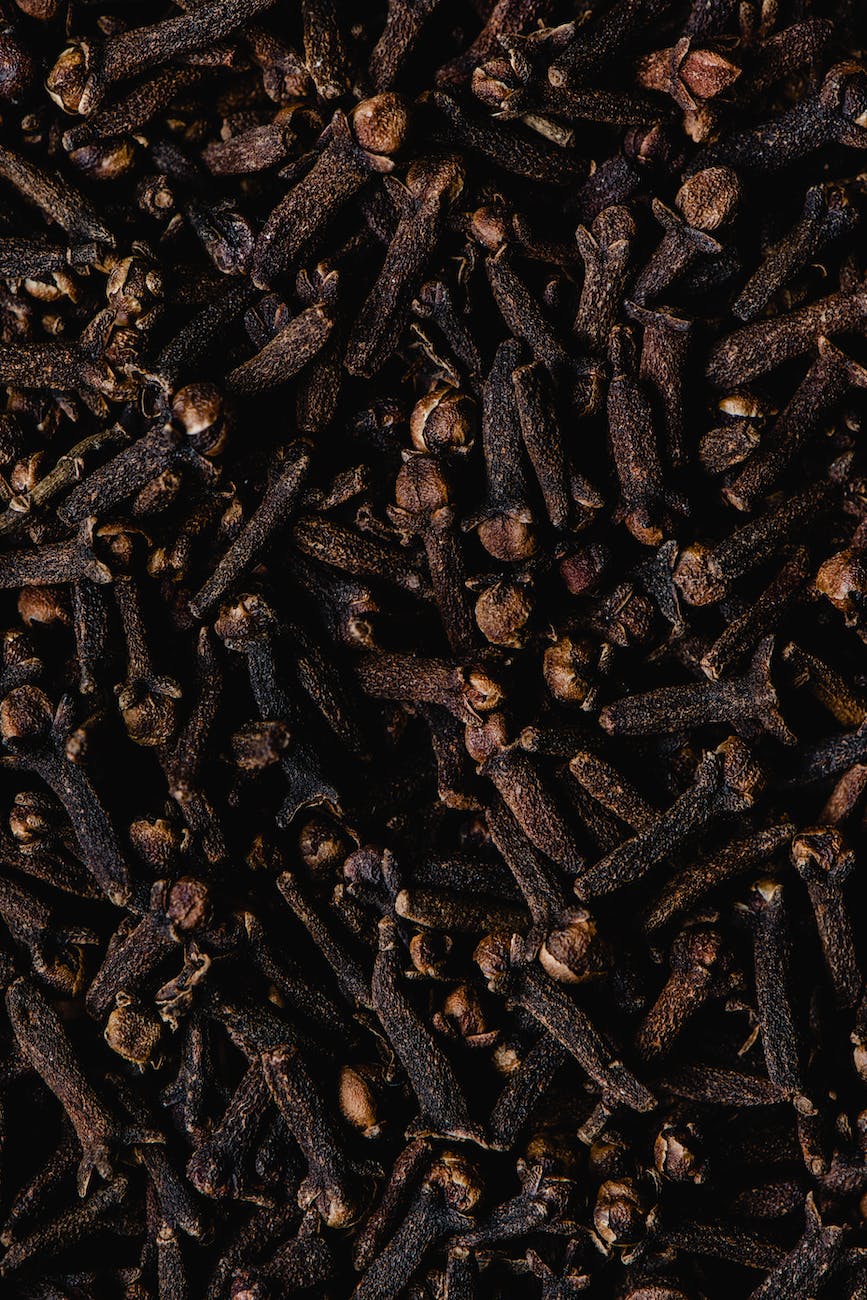
Hair gummies, or hair vitamins, have become a popular supplement in the beauty and wellness industry. They are often packed with essential vitamins and minerals, such as biotin, folic acid, and various B-vitamins, that promise to boost hair growth, enhance shine, and even improve skin and nail health. However, like any supplement, they can have side effects. In this guide, we’ll delve into the potential side effects of some of the most popular hair gummies on the market, starting with a general overview of common ingredients and their potential side effects.
Common Ingredients and Their Potential Side Effects
It’s important to note that the vitamins and minerals in hair gummies are often in a processed form, not in their natural state as found in whole foods. This can influence how they interact with your body and potentially lead to side effects.
Biotin
Biotin is a B-vitamin often found in hair gummies due to its role in hair and nail growth. However, high doses of processed biotin can lead to skin rashes, digestive upset, and problems with insulin release and skin rashes. Moreover, biotin can interfere with certain lab tests and give false readings, so it’s important to let your healthcare provider know if you’re taking biotin supplements.
Folic Acid
Folic acid, another B-vitamin, is essential for cell growth and metabolism, which makes it a common ingredient in hair gummies. However, excessive intake of processed folic acid can lead to stomach problems, sleep problems, skin reactions, and even can mask the symptoms of a vitamin B12 deficiency.
Vitamin A
Vitamin A is essential for cell growth and often included in hair gummies. However, too much processed vitamin A can lead to hair loss, dry skin, and swollen bones. It’s also worth noting that vitamin A is fat-soluble and can build up in your body, leading to potential toxicity.
Vitamin E
Vitamin E is an antioxidant that can help protect your hair cells from damage. However, taking too much processed vitamin E can lead to excessive bleeding, nausea, and even stroke in rare cases.
Now that we’ve covered some common ingredients and their potential side effects, let’s move on to specific brands of hair gummies.
[ez-toc]
Side Effects of New Nordic Hair Volume Gummies
New Nordic Hair Volume Gummies have gained popularity for their potent blend of vitamins and minerals that promote hair growth. They contain a mix of apple extract, millet extract, horsetail extract, and a generous dose of biotin, all of which are known to support hair health.
Apple Extract: This ingredient is rich in procyanidin B2, a natural compound that has been found to stimulate hair growth.
Millet Extract: Millet is a rich source of essential nutrients like magnesium, calcium, and proteins that can help strengthen hair and prevent breakage.
Horsetail Extract: This plant extract is rich in silica, a mineral that can help strengthen hair and nails.
Biotin: Also known as vitamin B7, biotin is one of the most important vitamins for hair growth. It helps convert certain nutrients into energy and improves the keratin infrastructure, a basic protein that makes up hair, skin, and nails.
While these ingredients are beneficial, some users have reported mild side effects. The most common side effect is digestive discomfort, such as bloating and stomach cramps. It’s also important to note that overconsumption of these gummies can lead to excessive intake of certain vitamins, which can have adverse effects. Therefore, it’s recommended to stick to the suggested dosage and consult with a healthcare provider if you experience any persistent side effects.
Potential Side Effects of Hum Hair Gummies
Hum Hair Gummies are another popular choice in the market, known for their high biotin and folic acid content. These gummies are designed to support hair health by promoting hair growth, improving hair strength, and reducing hair loss.
Biotin: As mentioned earlier, biotin is a crucial vitamin for hair health. It helps improve the keratin infrastructure, leading to stronger and healthier hair.
Folic Acid: This B-vitamin plays a vital role in cell growth. In terms of hair health, it helps in the formation of red blood cells, which carry oxygen and nutrients to the scalp and hair follicles, promoting hair growth and reducing hair loss.
Despite their benefits, some users have reported side effects. The most common side effect is skin breakouts, which could be due to the high biotin content. Biotin, although beneficial for hair growth, can cause skin issues in some people. As with any supplement, it’s important to follow the recommended dosage and consult with a healthcare provider if you experience any persistent side effects.
Side Effects of New Nordic Hair Volume Gummies
New Nordic Hair Volume Gummies have gained popularity for their potent blend of vitamins and minerals that promote hair growth. They contain a mix of apple extract, millet extract, horsetail extract, and a generous dose of biotin, all of which are known to support hair health.
Apple Extract: This ingredient is rich in procyanidin B2, a natural compound that has been found to stimulate hair growth.
Millet Extract: Millet is a rich source of essential nutrients like magnesium, calcium, and proteins that can help strengthen hair and prevent breakage.
Horsetail Extract: This plant extract is rich in silica, a mineral that can help strengthen hair and nails.
Biotin: Also known as vitamin B7, biotin is one of the most important vitamins for hair growth. It helps convert certain nutrients into energy and improves the keratin infrastructure, a basic protein that makes up hair, skin, and nails.
While these ingredients are beneficial, some users have reported mild side effects. Here are some potential side effects to be aware of:
- Digestive discomfort: This can include symptoms like bloating and stomach cramps.
- Skin rashes: Some users have reported skin rashes, which might be due to an allergic reaction to one of the ingredients.
- Nausea: This is a common side effect of many supplements and can occur if the gummies are taken on an empty stomach.
It’s also important to note that overconsumption of these gummies can lead to excessive intake of certain vitamins, which can have adverse effects. Therefore, it’s recommended to stick to the suggested dosage and consult with a healthcare provider if you experience any persistent side effects.
Potential Side Effects of Hum Hair Gummies
Hum Hair Gummies are another popular choice in the market, known for their high biotin and folic acid content. These gummies are designed to support hair health by promoting hair growth, improving hair strength, and reducing hair loss.
Biotin: As mentioned earlier, biotin is a crucial vitamin for hair health. It helps improve the keratin infrastructure, leading to stronger and healthier hair.
Folic Acid: This B-vitamin plays a vital role in cell growth. In terms of hair health, it helps in the formation of red blood cells, which carry oxygen and nutrients to the scalp and hair follicles, promoting hair growth and reducing hair loss.
Despite their benefits, some users have reported side effects. Here are some potential side effects to be aware of:
- Skin breakouts: High biotin content can cause skin issues in some people, leading to breakouts.
- Digestive issues: Some users have reported experiencing digestive discomfort, such as bloating and stomach cramps.
- Changes in urine color: High levels of B-vitamins can sometimes cause a change in urine color to a bright yellow.
As with any supplement, it’s important to follow the recommended dosage and consult with a healthcare provider if you experience any persistent side effects.
Side Effects of Haircarebear Gummies
Haircarebear gummies are a popular choice for those looking to improve their hair health. They contain a blend of vitamins and minerals, including biotin, folic acid, and vitamin C, all of which are known to support hair growth and health.
Biotin: This vitamin is essential for the production of keratin, the protein that makes up our hair and nails.
Folic Acid: Folic acid is known to facilitate the production of red blood cells, which carry oxygen and nutrients to the scalp and hair follicles.
Vitamin C: This vitamin is a powerful antioxidant that helps protect against oxidative stress caused by free radicals. It also helps in the production of collagen, a protein that helps maintain the structure of the hair.
Despite these benefits, some users have reported side effects. Here are some potential side effects to be aware of:
- Skin breakouts: Some users have reported experiencing skin breakouts after starting to take these gummies. This could be due to the high biotin content, which can cause skin issues in some people.
- Digestive issues: Digestive discomfort, such as bloating and stomach cramps, can occur in some users.
- Changes in urine color: High levels of B-vitamins can sometimes cause a change in urine color to a bright yellow.
As always, it’s important to follow the recommended dosage and consult with a healthcare provider if you experience any persistent side effects.
Side Effects of Hims Biotin Gummies
Hims Biotin Gummies are another popular hair supplement on the market. They contain a high dose of biotin, which is known to support hair growth and health.
Biotin: Biotin helps improve the keratin infrastructure, leading to stronger and healthier hair.
While biotin is generally safe, some users have reported side effects. Here are some potential side effects to be aware of:
- Skin breakouts: High biotin content can cause skin issues in some people, leading to breakouts.
- Digestive issues: Some users have reported experiencing digestive discomfort, such as bloating and stomach cramps.
- Changes in urine color: High levels of B-vitamins can sometimes cause a change in urine color to a bright yellow.
As with any supplement, it’s important to follow the recommended dosage and consult with a healthcare provider if you experience any persistent side effects.
Side Effects of Sugar Bear Hair Vitamins
Sugar Bear Hair Vitamins are a popular hair supplement that contains a blend of vitamins and minerals, including biotin, folic acid, and vitamin D, all of which are known to support hair health.
Biotin: This vitamin is essential for the production of keratin, the protein that makes up our hair and nails.
Folic Acid: Folic acid is known to facilitate the production of red blood cells, which carry oxygen and nutrients to the scalp and hair follicles.
Vitamin D: This vitamin helps in the creation of new hair follicles and may play a role in hair production.
Despite these benefits, some users have reported side effects. Here are some potential side effects to be aware of:
- Skin breakouts: Some users have reported experiencing skin breakouts after starting to take these vitamins. This could be due to the high biotin content, which can cause skin issues in some people.
- Digestive issues: Digestive discomfort, such as bloating and stomach cramps, can occur in some users.
- Changes in urine color: High levels of B-vitamins can sometimes cause a change in urine color to a bright yellow.
As always, it’s important to follow the recommended dosage and consult with a healthcare provider if you experience any persistent side effects.
Side Effects of Nature’s Bounty Hair, Skin, and Nails Gummies
Nature’s Bounty Hair, Skin, and Nails Gummies are a well-known supplement that contains a blend of vitamins and minerals, including biotin, folic acid, and vitamin E, all of which are known to support hair health.
Biotin: This vitamin is essential for the production of keratin, the protein that makes up our hair and nails.
Folic Acid: Folic acid aids in tissue growth and cell function, which are vital for hair growth and health.
Vitamin E: This vitamin is a powerful antioxidant that helps protect against oxidative stress caused by free radicals. It also helps in maintaining hair health.
Despite these benefits, some users have reported side effects. Here are some potential side effects to be aware of:
- Skin breakouts: Some users have reported experiencing skin breakouts after starting to take these gummies. This could be due to the high biotin content, which can cause skin issues in some people.
- Digestive issues: Digestive discomfort, such as bloating and stomach cramps, can occur in some users.
- Changes in urine color: High levels of B-vitamins can sometimes cause a change in urine color to a bright yellow.
As always, it’s important to follow the recommended dosage and consult with a healthcare provider if you experience any persistent side effects.
Side Effects of Perfectil Hair Crush Gummies
Perfectil Hair Crush Gummies are a popular hair supplement that contains a blend of vitamins and minerals, including biotin, folic acid, and vitamin B12, all of which are known to support hair health.
Biotin: This vitamin is essential for the production of keratin, the protein that makes up our hair and nails.
Folic Acid: Folic acid aids in the formation of red blood cells, which deliver oxygen to the scalp and hair follicles, promoting hair growth and health.
Vitamin B12: This vitamin plays a crucial role in the formation of red blood cells and DNA synthesis, both of which are essential for hair growth.
Despite these benefits, some users have reported side effects. Here are some potential side effects to be aware of:
- Skin breakouts: Some users have reported experiencing skin breakouts after starting to take these gummies. This could be due to the high biotin content, which can cause skin issues in some people.
- Digestive issues: Digestive discomfort, such as bloating and stomach cramps, can occur in some users.
- Changes in urine color: High levels of B-vitamins can sometimes cause a change in urine color to a bright yellow.
As always, it’s important to follow the recommended dosage and consult with a healthcare provider if you experience any persistent side effects.
[ez-toc]
Managing the Side Effects of Hair Growth Gummies
While hair growth gummies can provide essential nutrients for hair health, they can also cause side effects in some individuals. Here are some tips to manage these side effects:
- Start with a lower dose: If you’re new to taking hair growth gummies, start with a lower dose than recommended and gradually increase it. This can help your body adjust to the new supplement.
- Stay hydrated: Drinking plenty of water can help alleviate some side effects like digestive issues and skin breakouts.
- Maintain a balanced diet: While these gummies are a supplement, they are not a substitute for a balanced diet. Ensure you’re getting a variety of nutrients from your diet to support overall health, including hair health.
- Consult with a healthcare provider: If you experience persistent side effects, it’s important to consult with a healthcare provider. They can provide guidance on whether you should continue taking the supplement or consider alternatives.
Frequently Asked Questions
Q: Can everyone take hair growth gummies? A: While hair growth gummies are generally safe for most people, they may not be suitable for everyone. People with certain medical conditions or those who are pregnant or breastfeeding should consult with a healthcare provider before starting any new supplement.
Q: Can I take more than the recommended dose for faster results? A: It’s important to stick to the recommended dose. Taking more than recommended does not necessarily lead to faster results and can increase the risk of side effects.
Q: Can I take hair growth gummies with other supplements? A: It depends on the other supplements you’re taking. Some vitamins and minerals can interact with each other, affecting how they’re absorbed and used by the body. It’s best to consult with a healthcare provider if you’re planning to take multiple supplements.
Q: How long does it take to see results from hair growth gummies? A: This can vary from person to person. Some people may see results in as little as a few weeks, while others may need to take them for several months before noticing a difference.
Q: What should I do if I experience side effects from hair growth gummies? A: If you experience side effects, it’s important to consult with a healthcare provider. They can provide guidance on managing side effects and determine whether the supplement is right for you.
Blog Tags
Hair Growth, Hair Gummies, Side Effects, Hair Health, Biotin, Folic Acid, Vitamin E, Vitamin B12, Skin Breakouts, Digestive Issues, Urine Color, Hair Supplement, Balanced Diet, Hydration, Healthcare Provider, Supplement Dosage, Supplement Interaction, Hair Results, Managing Side Effects











